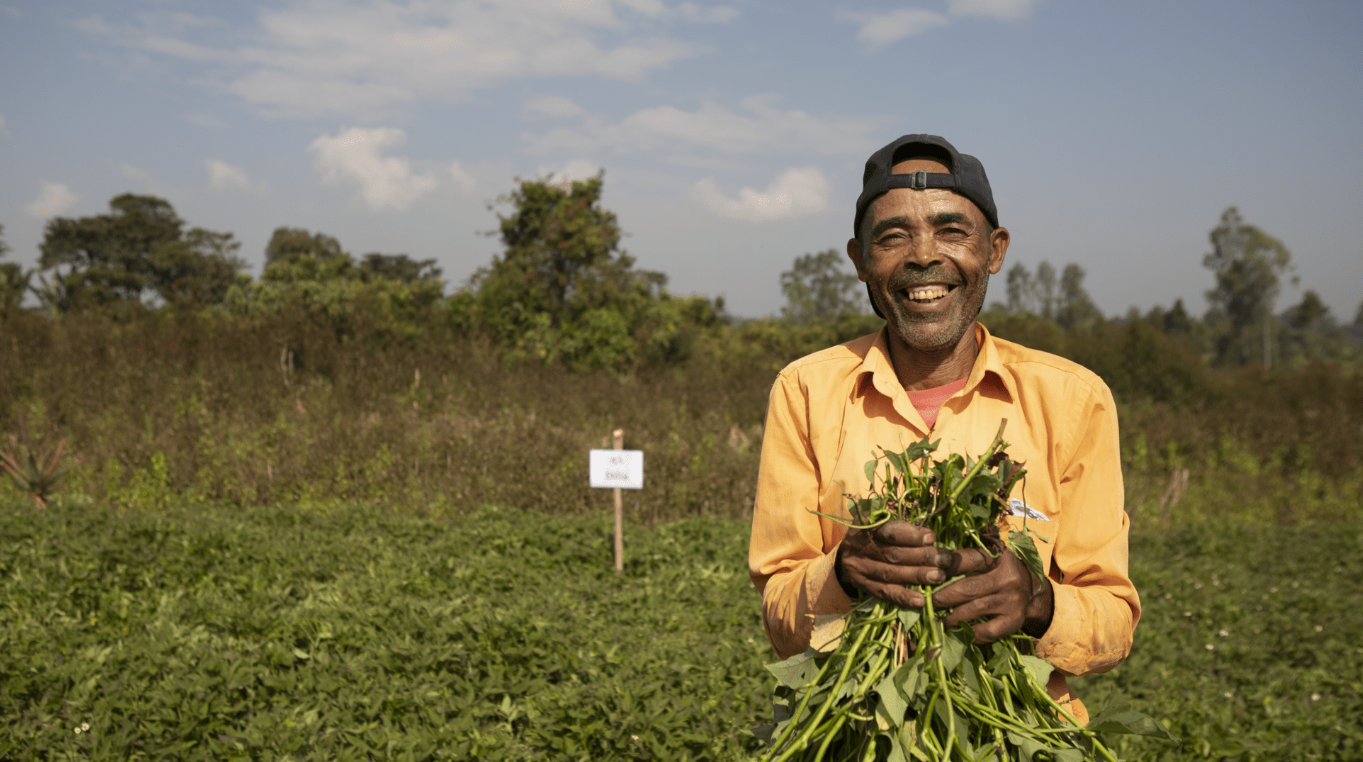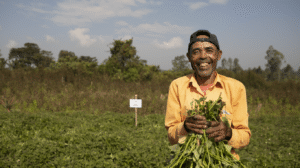Physical Address
304 North Cardinal St.
Dorchester Center, MA 02124
Physical Address
304 North Cardinal St.
Dorchester Center, MA 02124

Farming as Social Worship and Ecological Jihad. Amidst the environmental crisis and food inequality, Indonesians are facing a rather alarming situation. Rice prices are skyrocketing, agricultural land is being eroded, and clean water is becoming increasingly scarce for rural residents. At the same time, mining expansion and industrial land development are increasingly encroaching on the fertile land of smallholders.

This scenario propels Muslims to re-evaluate the pivotal role of agriculture and food preparation through the lens of Sharia. At this critical juncture, Islam cannot remain indifferent. Cultivating the land is not solely a way to satiate hunger; rather, it represents a form of social devotion urged by Allah and constitutes a facet of ecological jihad. Sharia governs the interactions between humanity and the natural world, establishing land stewardship and food security as fundamental duties of the caliphate on earth.
As reported by walhi.or.id, previously, the forests of Kalimantan and Papua faced significant exploitation and deforestation for the sake of establishing extractive industries, like mining. For instance, Indonesia loses an astounding 680,000 hectares of forest annually. Moreover, 101 out of 105 rivers are critically polluted. These circumstances underscore that the ecological crisis should not be underestimated.
Thus, Islam acknowledges that humans are not absolute sovereigns on this planet but rather caliphs tasked by Allah with the responsibility to nurture and safeguard the earth, rather than to ruin it. This aligns with the message of Allah SWT in the Qur’an, Surah Al-An’am, verse 165:
وَهُوَ الَّذِيْ جَعَلَكُمْ خَلٰۤىِٕفَ الْاَرْضِ وَرَفَعَ بَعْضَكُمْ فَوْقَ بَعْضٍ دَرَجٰتٍ لِّيَبْلُوَكُمْ فِيْ مَآ اٰتٰىكُمْۗ اِنَّ رَبَّكَ سَرِيْعُ الْعِقَابِۖ وَاِنَّهٗ لَغَفُوْرٌ رَّحِيْمٌࣖ
Meaning: “He is the One who made you caliphs on earth and raised some of you several degrees above others to test you with what He has given you. Indeed, your Lord is swift in punishment. Indeed, He is Forgiving and Merciful.”
This verse highlights that Allah appointed humans as stewards of the earth,
not merely to oversee the lives of individuals, but also to nurture the land,
manage water resources, and produce food. Those who undermine this balance, by activities such as tainting the soil,
contaminating water supplies, or exploiting forests for industrial gain, engage in acts of destruction that oppose the principles of Sharia.
In the realm of fiqh, environmental degradation falls under muharramat (that which is prohibited),
as it jeopardizes maslahah ammah (the collective welfare).
Modern fiqh scholars like Sheikh Wahbah Az-Zuhaili emphasize the significance of safeguarding nature as part of fardhu kifayah. (Wahbah Az-Zuhaili, Al-Fiqh al-Islami wa Adillatuh, [Damascus: Dar al-Fikr, 1985], Volume 8, p. 5827).
Sharia Addresses Ecology Today’s situation reveals that numerous fertile regions have been transformed into mining locations. In Halmahera and Wawonii,local farmers’ ancestral lands have been seized by nickel corporations. Along the coast of Papua, the extraction of sea sand is wreaking havoc on ecosystems. Additionally, the development of the IKN, which is to become the new capital, is displacing the agricultural fields of the Kalimantan populace.
Conversely, the water crisis is increasingly endangering Islamic boarding schools and rural settlements. In Gunungkidul, Cianjur, and Karawang, water has turned into a rare resource. This undoubtedly impacts the food security of small communities.
If water and land are usurped, then the food supply will inevitably face a crisis. Allah has clarified in His words that such ruinous actions stem from humans.
Allah states in Surah Ar-Rum as follows:
ظَهَرَ الْفَسَادُ فِى الْبَرِّ وَالْبَحْرِ بِمَا كَسَبَتْ اَيْدِى النَّاسِ لِيُذِيْقَهُمْ بَعْضَ الَّذِيْ عَمِلُوْا لَعَلَّهُمْ يَرْجِعُوْنَ
Meaning: “Corruption has appeared on land and sea because of what people’s hands have wrought, so that He may make them taste some of the consequences of their deeds, so that they may return (to the right path).” (QS. Ar-rum: 30/41)
Imam al-Thabari in Jami al-Bayan fi Ta’wil al-Quran mentions that “corruption” (الفساد) encompasses many forms: murder, injustice, famine, soaring prices, and disasters caused by human actions. According to him, the meaning of “corruption” is not limited to ecological aspects but also includes moral and ethical decay spreading throughout society. (Abu Ja’far Muhammad bin Jarir ath-Thabari, Jami al-Bayan fi Ta’wil al-Qur’an, [Beirut: Muassasah ar-Risalah], pages 338-340)
In fact, in another verse, Allah forbids humans from causing destruction on this earth. Allah says:
وَلَا تُفْسِدُوْا فِى الْاَرْضِ بَعْدَ اِصْلَاحِهَا وَادْعُوْهُ خَوْفًا وَّطَمَعًاۗ اِنَّ رَحْمَتَ اللّٰهِ قَرِيْبٌ مِّنَ الْمُحْسِنِيْنَ
Meaning: “Do not cause corruption on earth after it has been set in order. Pray to Him with fear and hope. Indeed, Allah’s mercy is very close to those who do good.” (QS. Al-A’raf: 7/56) In interpreting this verse, Imam al-Qurthubi quotes the words of al-Dahhak ibn Muzahim (d. 105 H):
مَعنَاهُ لَا تَغورو المَاءَ المُعَيَّنَ وَلَا تَقطَعُوا الشَجَرَ المُثَمَّرَ ضَرَرًا
Meaning: “In other words, do not dry up flowing water and do not cut down fruit-bearing trees in a harmful manner.” (Imam al-Qurthubi, al-Jami li Ahkam al-Qur’an [Cairo: Dar al-Kutub al-Misriyyah], Volume 7, page 160)
Sharia cannot remain silent when fertile land is turned into mining pits. Sharia is not enough to merely regulate what is halal and haram in food, but must also regulate justice in how food is produced or distributed—farming as Worship and Charity. In the view of Sharia, farming is not merely a job to meet financial needs.
More than that, farming is part of social worship and ecological charity that has a significant impact on the sustainability of life, especially in the current era of ecological crisis. This activity touches on two important dimensions in Islam: [1] Devotion to Allah (worship) and [2] Social benefits among fellow human beings (charity). The Prophet Muhammad (peace be upon him) explicitly honored the activity of farming. This is in line with his saying in a hadith:
مَا مِنْ مُسْلِمٍ يَغْرِسُ غَرْسًا, أَوْ يَزْرَعُ زَرْعًا فَيَأْكُلَ مِنْهُ طَيْرٌ أَوْ إِنْسَانٌ أَوْ بَهِيْمَة ٌ إِلاَّ كَانَ لَهُ بِهِ صَدَقَةٌ
Meaning: “No Muslim plants a plant, then it is eaten by humans, animals, or birds, except that it becomes a charitable deed for him.” (HR. Imam Bukhari, No. 2321)
This saying signifies that the crops enjoyed by living beings can be regarded as a type of reward.
Islam broadens the concept of charity beyond mere direct donations;
even indirect beneficial actions count as acts of charity.
Cultivating the land can be seen as an act of devotion, particularly when performed with genuine intentions to satisfy human needs, lessen reliance on the capitalist food system, and safeguard the earth as a responsibility for us as its caretakers. Imam Al-Ghazali, in his work Ihya ‘Ulumuddin, asserts, “Farming is the most esteemed occupation because it forms the basis of life, provides nourishment for the body, sustains animals, and through it, the world maintains its balance.” (Imam Al-Ghazali, Ihya ‘Ulumuddin [Dar al-Ma’rifah] Volume II, page 104)
Sharia should not merely linger on shelves and lecture stages. It has to take hold in desolate fields, parched rivers,
unjust markets, and the empty stomachs of farmers.
When students start cultivating chili peppers and onions behind the pesantren,
when scholars champion organic farming, and when pesantren institutions evolve into hubs of agroecology,
then Sharia becomes dynamic and fosters life.
Keep in mind, farming is not just about planting and gathering; it is a communal remembrance and
a form of ecological struggle that quietly rescues the community from dependency and decay.